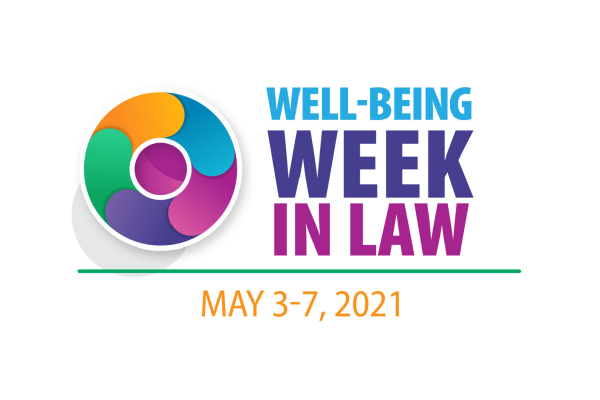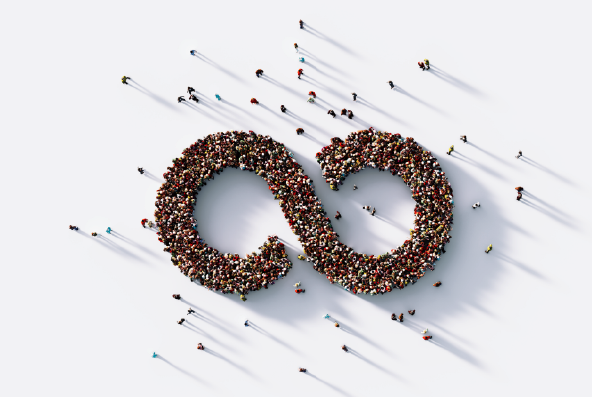It isn’t healthy to make decisions based on fear, as common as it is in the legal profession. Here’s how to start rewiring your brain to focus on positive outcomes.
Many areas of life highlight the reasons why we choose to do one thing and not another. From a moral development perspective, a person’s reason for their decision is much more important than the actual decision. Moral dilemmas ask a person what they would do, and then why — e.g., Your child needs an expensive medicine to survive but you cannot afford it. Do you steal it to save your child? The actual decision does not tell you anything about the person’s moral development, but the reason behind the decision does — e.g., I would steal the medicine because my family would be mad at me if I didn’t; versus, I would steal the medicine because my child’s life would supersede the agreed upon laws and my good reputation and I would be willing to accept any consequences of breaking those laws in order to protect my child.
In our daily lives we are not typically faced with such serious moral dilemmas. However, the reasons behind our daily decisions tell us a lot about ourselves and they greatly impact how those decisions affect us. One of the most common reasons behind the major decisions we make in life is fear. Fear creeps into decision-making all the time when we think about the potential risks of choosing option A over option B. And while fear can be protective — it helps you avoid choosing a life-threatening option — it can also make you feel trapped as it essentially eliminates options as it brands them unrealistic or dangerous. The fewer options you have, the less control you feel you have in life, so you feel more trapped, which all leads to a significant increase in stress.
An example I hear often: An associate at a large firm feels burnt out and overwhelmed due to the workload and long hours. Demanding clients want their matters handled yesterday, partners keep throwing more work on their desk and also expect that work to get done before anything else in their life, work hours spill over into the evenings and weekends, and joy in life dries up to a trickle. The question arises, “Should I keep doing this or quit the firm?” As the associate considers their options, fear often presents itself in terms of “what if” questions. What if I said “no” to a client or partner? What if they stop trusting me with important work? What if I leave this job and can’t get another one with a comparable salary? What if my next job is more stressful than this one? Fear can singlehandedly turn a viable option into a terrible idea.
The goal of identifying and addressing fear is not to make the alternative option the most attractive or to reveal the “right option”. After all, it’s not about the decision you make, it’s about the reason you make it. That associate could choose to stay in their position for the rest of their career because they fear the financial risks of quitting — and will feel they’re trapped in that job and miserable — or because they want to take advantage of the experience of that job and become partner one day so they can have more choice in their future work (and feel empowered and determined). Of course I am oversimplifying this for the sake of brevity.
Here are some tips to exclude fear from your decision-making process:
- When considering choices in life, identify where your fears exist.
- Confront and challenge your fearful thoughts (Answer the “What if” questions with practical answers).
- Imagine that you can handle any fear-related outcome of a decision so that your experience of fear can diminish.
- Identify other reasons (aside from fear) to choose any and all of the options available to you.
- Make a decision based on that reason and see how it feels.
A habit of making decisions based on fear can create anxiety. You can find more on the difference between anxiety and fear in this post. Avoiding something that makes you worry usually results in that worry growing and impacting your life to a greater degree. Routinely giving into fear can turn occasional feelings of anxiety into an anxiety disorder. First, if anxiety is not confronted it has no challenger and therefore has no need to shrink. Second, when we choose to avoid an anxiety it makes us feel less powerful in an important area of our lives. We all want to avoid or decrease pain. But if the pain is thought to be outside of our control, it hurts more. Hence, when we avoid anxiety but are still impacted by it, it can feel as though the discomfort is greater due to feeling helpless in the situation.
PRO TIP! Choose to make yourself uncomfortable — whether in a natural or controlled setting. By choosing to make yourself uncomfortable, the discomfort feels less intense because you have a great sense of control. In addition to this, choosing to confront an anxiety provides a challenge to the anxious thoughts that directly forces the anxiety to shrink. Find more on strategies for dealing with anxiety in this previous post series. The best technique for fighting anxiety is the one that works best for you. Try out various techniques, evaluate how they work for you, and continue to use the most effective ones to reduce your fears. While confronting anxiety is uncomfortable, the end result is less worry and more self-confidence.
Stay focused on what you want in your life and where you want to go — not where you’re afraid to end up. If you focus on where you fear you will end up — let’s say, in an argument with someone — your natural reaction will make it more likely that you will get there. You anticipate a fight, you become defensive in preparation, you tend to try to make sure your point of view is heard, you become more tense, and you become less flexible and compromising. All that leads to an increased chance of having an argument. However, if you were to focus on where you hope to end up — let’s say, having a helpful conversation that ends in a mutually beneficial outcome — you’re more likely to think well of the other person, which leads to a friendlier interaction, which allows you to think of compromises, which increases your chance of coming to a mutually beneficial outcome. Find more on thinking beyond the Zero-Sum Game here.
Although it’s waned significantly, stigma still exists in the legal profession around seeking help in general, and for mental health particularly. Find more on how individuals can overcome stigma-related fears here. And as always, lawyers and law students in Massachusetts can talk to one of our licensed clinicians for FREE and confidentially. Find more on scheduling here.
Aside from preventing you from choosing a life-threatening option, fear is rarely useful in decision-making. Listen to Elizabeth Gilbert read A Letter to Fear, an excerpt from Big Magic, her memoir on creativity following the success of her earlier memoir-turned-Julia-Roberts-movie, Eat Pray Love. Inform your fears they no longer get a vote when making decisions in your life.
. . .
This post was compiled and updated from previous posts by Shawn Healy, PhD which now redirect here: Fear versus Hope: A Motorcycle Metaphor for Life, The Reason Behind Your Decision Matters: Fear Is Not Your Friend, Approach Your Fears and They Get Smaller




